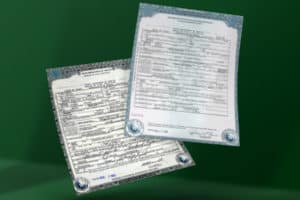Losing a loved one and trying to process the changes it creates in your own life is hard enough. But when you are responsible for a loved one’s affairs the uncertainty of the “next steps” can add another layer of stress.
There are things that legally need to be done, such as getting a death certificate. And there are financial matters, like outstanding credit card balances. Then there are the funeral arrangements. It’s a lot to manage, especially during a major life event.
Our team helps families in Texas navigate the end-of-life process every day. We’ve created this master list to help families all over the country get a better grasp on what needs to be handled immediately after a death and how to go about handling it all.
Immediately After a Death
Pronounce the Death
If your loved one was in a hospital or hospice care this isn’t something you’ll have to worry about. However, when a loved one passes away at home a medical professional will need to come and formally pronounce the death.
Check Organ Donor Status
Time is of the essence if a person is an organ donor. Organ donor status can be found on a driver’s license and medical documents.
Find out more about organ donor status.
Let Others Know
Once the death has been pronounced and measures are taken for organ donation you may want to let other friends and families who aren’t there with you know that your loved one passed.
This is a very emotional process so it’s important to wait until you’re ready. You may find it’s helpful to first reach out to a few trusted loved ones who can help you cope and share the news with others.
Get tips on communicating your loss to others.
Review Last Will & Testament
If there’s a last will & testament, or something similar like an advanced directive, it needs to be reviewed right away so that your loved one’s wishes are carried out as they wanted.
Learn more about last will & testaments.
Find a Funeral Home
After a death, a body must be properly cared for. There are state and local laws dictating what can and can’t be done. Funeral homes exist to help families with this process.
If your loved one planned in advance they may have already specified what they want to have happen after their death and which funeral home to use. However, if no funeral home is specified, let your loved one’s wishes guide who is selected.
Discover the benefits of advanced planning.
Begin the Process of Getting Death Certificates
Death certificates are required for closing out accounts. The funeral home will be able to help you get the proper paperwork and documentation together for the death certificates.
Find out how many death certificates are needed.
Arrange Care for Dependents and Pets
If your loved one had dependents or pets in their care you’ll need to find a place for them to stay where they can be cared for until a long-term solution is determined. If there’s a last will & testament your loved one may have spelled out who they want to take care of their dependents and/or pets.
Make Sure Their Property is Secure
Someone will need to check on the deceased’s property, such as their home and vehicles. Make sure to lock all windows and doors, turn off all devices and set the thermostat to 78-80 degrees in the summer or 60-62 degrees in the winter.
Notify Their Place of Work
When a person dies suddenly the place where they work will be just as caught of guard as the family and friends. If your loved one had a job you’ll need to let their employer know of their death as soon as possible.





